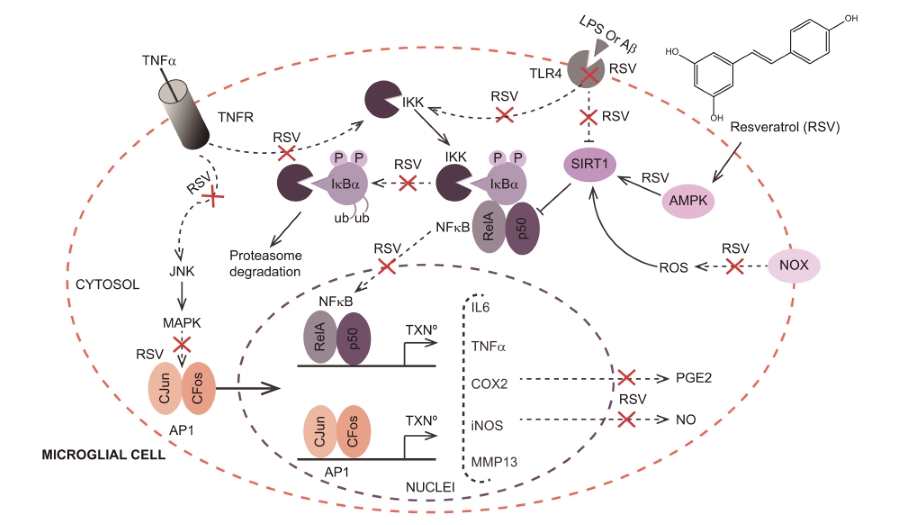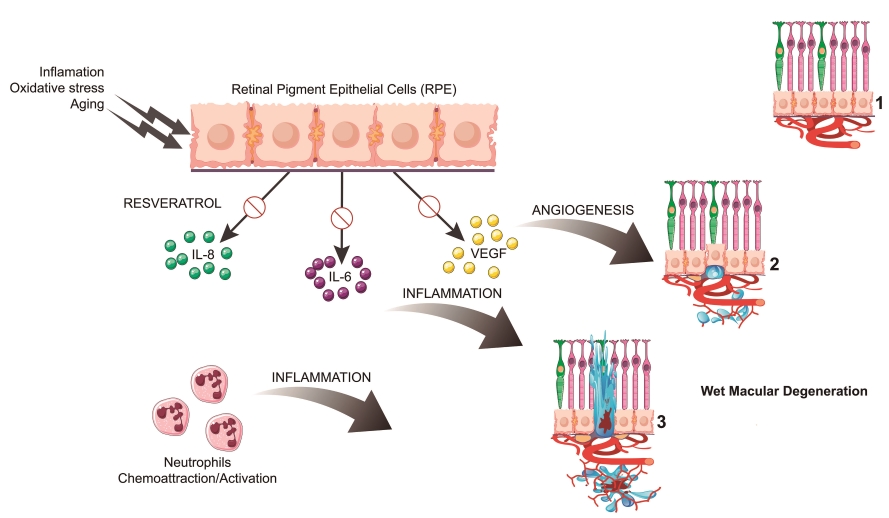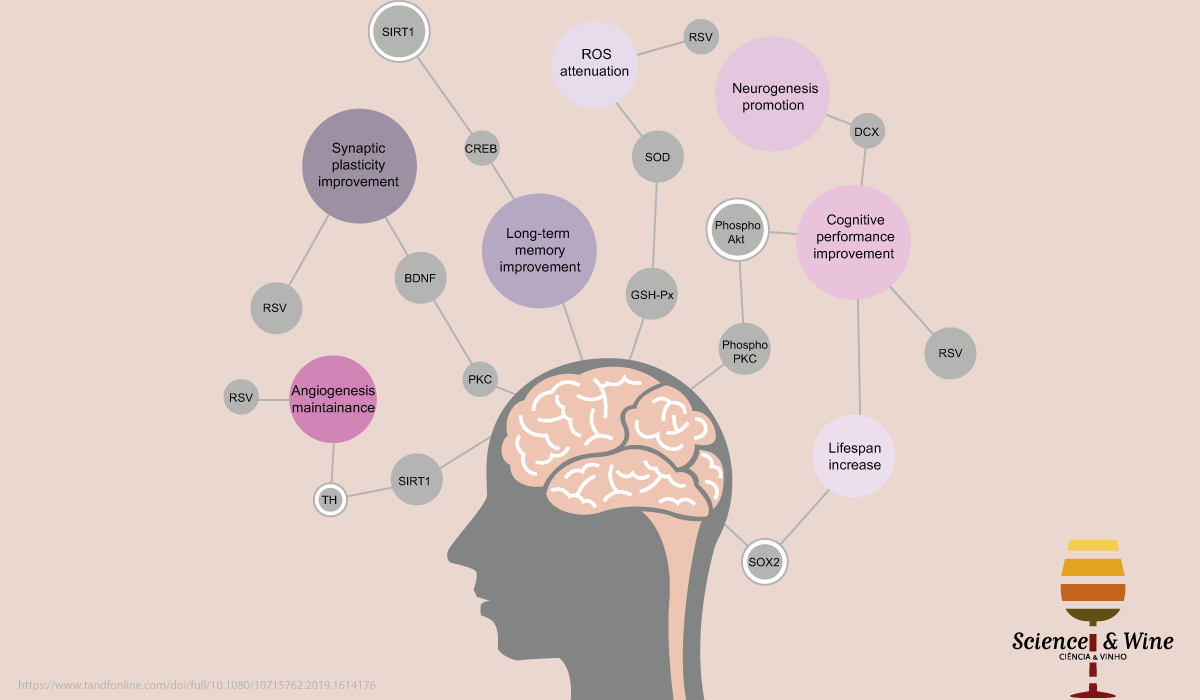By Paula Silva, Antoni Sureda, Josep A. Tur, Pierre Andreoletti, Mustapha Cherkaoui-Malki and Norbert Latruffe
Mediterranean diet (MD) is the most relevant nutritional aspect of the multisecular Mediterranean civilisation which includes wine as an element of health and wellbeing when consumed with moderation. Indeed, besides macronutrients (protein, carbohydrates, and lipids), Mediterranean meals provide food micronutrients which include polyphenols, vitamins, fibres, polyunsaturated fatty acids, and oligo-elements brought by fruits, vegetables, olive oil, fish, infusions, wine, and others. Interestingly, grape and olives provide unique polyphenols with antioxidant properties, especially resveratrol from grapes and red wine.
This review topic deals with how efficient is resveratrol (RSV) towards alterations during the aging process, as protective agent of brain aging on the elderly. MD, also called Cretan diet, has been proven to prevent diseases including cardiovascular pathologies and to prevent aging. The highest level of centenarian is found in countries where they adopt MD and a good life style i.e. in Crete, Sardinia, and in other places of Mediterranean coast. By the way, this diet can be compared to the Okinawa diet which privileges omega-3 fatty acid, polyphenols from seaweed and from tea.
Impairment of the nervous system in different regions of the brain occurs mostly in aging people leading to neurodegenerative diseases, such as Alzheimer’s disease, Parkinson’s disease (PD), and multiple sclerosis, which are the most common. Aging cognitive impairment is considered to be associated with increased oxidative stress and the well-known antioxidant properties of dietary RSV appear interesting to explore. The published data are often surprising. For instance, consumption of RSV capsules enhances both cerebrovascular function and cognition in postmenopausal women. In contrast, for some reviews and meta-analysis, RSV has no significant effect on memory improvement or cognitive performance. The contradictory results obtained with different antioxidants, and in our case with resveratrol derives from their capability to exert pro-oxidant and antioxidant activities of resveratrol depending on its concentration and the target cell type.

The beneficial effects of RSV associated with the practice of physical exercise are not clear either. Although there is some evidence of beneficial effects, RSV counteracts its positive effects. At the opposite, supplementation with RSV augmented the improvement of mitochondrial function, muscle fatigue resistance, and the increased mean fibre area and muscle nuclei associated with exercise, which may contribute to reducing/reversing sarcopenia in elderly people. In the PREDIMED study, the authors also described the inverse association between high levels of RSV and the risk of developing frailty syndrome during the first 3 years of follow-up, but no significant effects were found after 6 and 9 years.
The apparent inconsistent results in cognitive improvement or not are summarised here: RSV nutritional interventions lead to an increase in brain functions, cerebral blood flow of healthy adults without affecting their cognitive function. While no improvement in verbal memory was observed in elderly people after receiving RSV, the consumption of RSV enhances both cerebrovascular function and cognition in postmenopausal women. In addition, meta-analysis considers that RSV has no significant effect on memory improvement or cognitive performance. The possible reasons for these discrepancies could be due to variations in the protocol of RSV administration and the patient status.
Moreover, in some aging disorders, oxidative stress and neuro-inflammation, associated with microglia activation play a central role in the physiopathogenesis by producing proinflammatory molecules. Anti-inflammatory diet components such as RSV exhibit basic mechanisms leading to protecting effects, at least in biological models.
RSV is thus a molecule capable of acting in various cell types of the eye by increasing the level of natural antioxidant defences and to limit the generation of free radicals and the onset of irreversible damage, initiators of diseases such as AMD, cataracts, or glaucoma.

In conclusion, only a few controlled studies on RSV were done so far. The evidence is based on animal research and first interventional human trials warrant further investigations. The MD concept of food synergy should benefit from future trials that evaluate the basic knowledge of lifestyle patterns to prevent declining cognitive functions with the aging process.
Read all this paper at: https://www.tandfonline.com/doi/full/10.1080/10715762.2019.1614176

